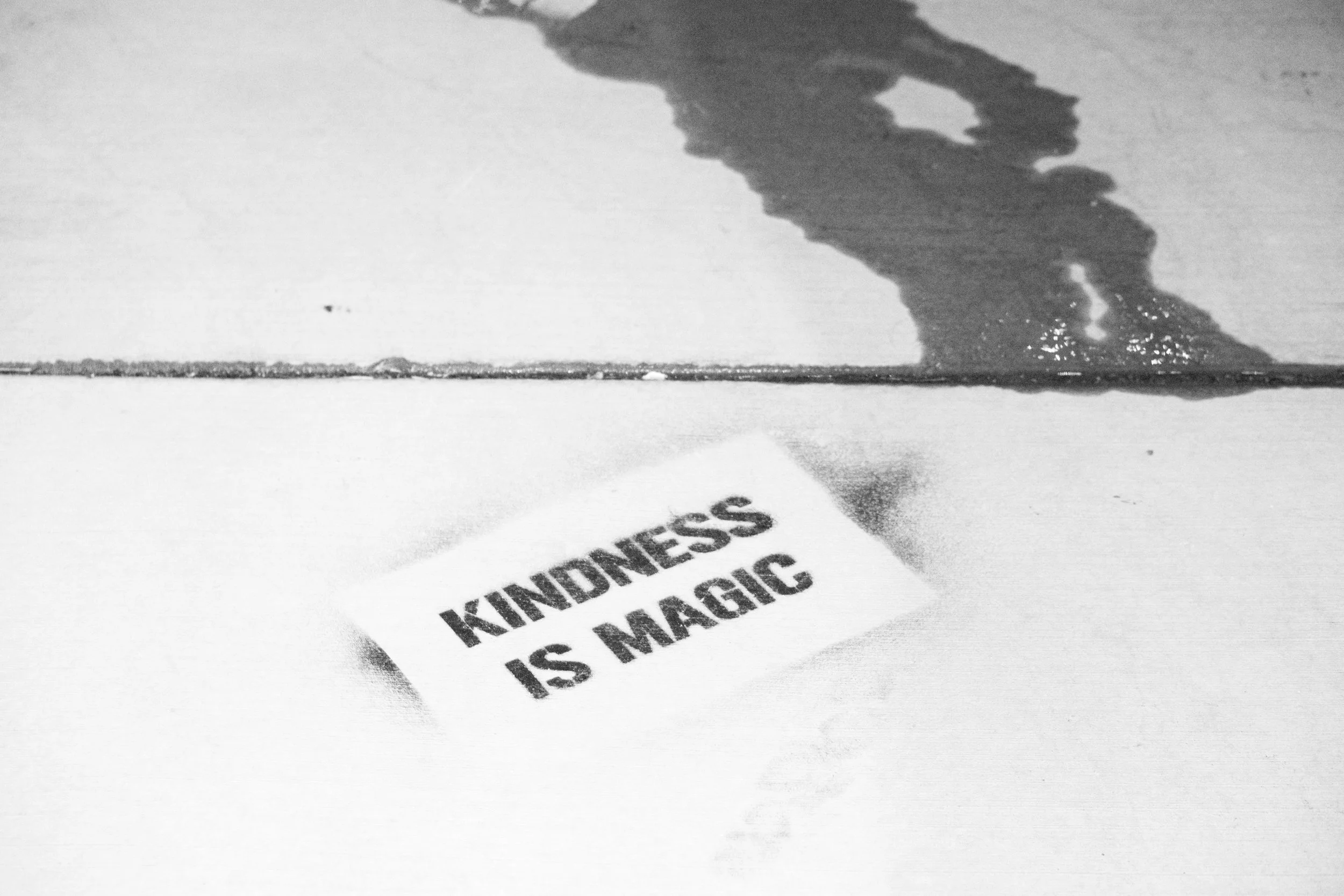Everyone loves an encouraging word or a helping hand when they need it most. Sometimes all it takes is an act of kindness to make your day — you know this to be true whether you receive help or provide it to someone else. Genuine understanding comes from a place of selflessness and compassion — whether you know the recipient personally or not. Psychology has shown that individuals who frequently perform random acts of generosity are happier and healthier than those who don't.
Words: Kate Harveston
Image: Robert Baker on Unsplash
How does this occur? Why do these seemingly simple acts have so many tangible benefits? You may be asking yourself these questions right now — look no further for answers. Read on to discover five reasons why offering a loving touch boosts your happiness.
1. Provides a Sense of Belonging
Image: Priscilla Du Preez on Unsplash
Showing kindness to others proves you have empathy for them. If you help someone struggling to cross the street, you likely have an understanding of how they feel and want to ease their strain. Maybe you want to make someone's day brighter by giving them a big tip or complimenting their outfit — all these acts are valid. No matter how you do it, being altruistic brings you closer to other people. You eliminate the likelihood of isolation or alienation by creating interpersonal connections.
You also raise your self-esteem through being kind. When you see yourself as worthy of giving and receiving love, you're more likely to participate in healthy exchanges of it.
2. Releases Pleasant Neurotransmitters
Image: Priscilla Du Preez on Unsplash
When you practice kindness, the reward center in your brain lights up as if you were the one receiving the action. Dopamine causes this reaction, as well as every other response in your internal reward center. This neurotransmitter provides motivation, keeps you alert and even regulates your sleep despite its stimulating qualities.
Your body also produces increased serotonin, which calms you, regulates your mood and makes you happy. This chemical is responsible for controlling a large expanse of body functions — from your brain to your bowels. Both these neurotransmitters together improve your memory, learning and cognition. Dopamine facilitates REM, which is the part of your sleep cycle that consolidates and stores long-term memories.
Oxytocin also factors in manufacturing happiness by creating emotional bonds and facilitating trust. It also improves your heart health — pleasantly ironic for a chemical coined the love hormone.
3. Creates a Positive Feedback Loop
Image: Vonecia Carswell on Unsplash
Dopamine production encourages the concept of the positive feedback loop. When you experience a rush of pleasant emotions after helping someone, you may feel the urge to do it again to relive that feeling. People experience the same emotions when doing certain drugs or eating good food, but this cause is all-natural and relatively safe to indulge in. After you assist someone else, they experience a similar rush and may go on to do an act of kindness for another person.
These good deeds spread, touching the lives of people you may never know. The positive feedback loop embodies the concept of paying it forward, where one effect benefits countless people. Spreading kindness throughout the world -- or simply through your local community — changes everyone for the better.
4. Reduces Negative Emotions
Image: Priscilla Du Preez on Unsplash
Altruism reduces negative emotions like stress, sadness and anxiety. People who do random acts of kindness tend to have low cortisol and blood pressure rates. Scientists published a study in the journal Translational Issues in Psychological Science analyzing 640 depressed individuals who they instructed to do compassion exercises every other day. Within two months, even the most depressed individuals displayed significant rates of increased life satisfaction.
Those prone to negative emotions like hostility or irritability can benefit from showing compassion to others. Do a good deed for someone and notice how it brightens their day — then consider how many other lives you can touch in the same way. It will change your outlook, even if it takes some getting used to first.
5. Increases Energy
Image: Angelina Litvin on Unsplash
The physical benefits of dopamine and serotonin include increased energy. People with low levels of dopamine often report fatigue, depression and lowered motivation. When they have adequate amounts of the hormone, they regain their drive to accomplish tasks. If you ever hit a slump at work or school, being kind to someone every day can raise your energy and self-esteem. These two environments need people full of empathy and compassion more than ever.
You can see how doing good for others serves as an effective motivator whenever you feel under the weather. However, remember to do these acts out of the goodness of your heart —not for your own gains.
Pay It Forward
It doesn't cost anything to be kind, and that giving urge can travel distances you'd never imagine. Do something nice for someone today, and see how invigorated and full of gratitude it will make you feel.





